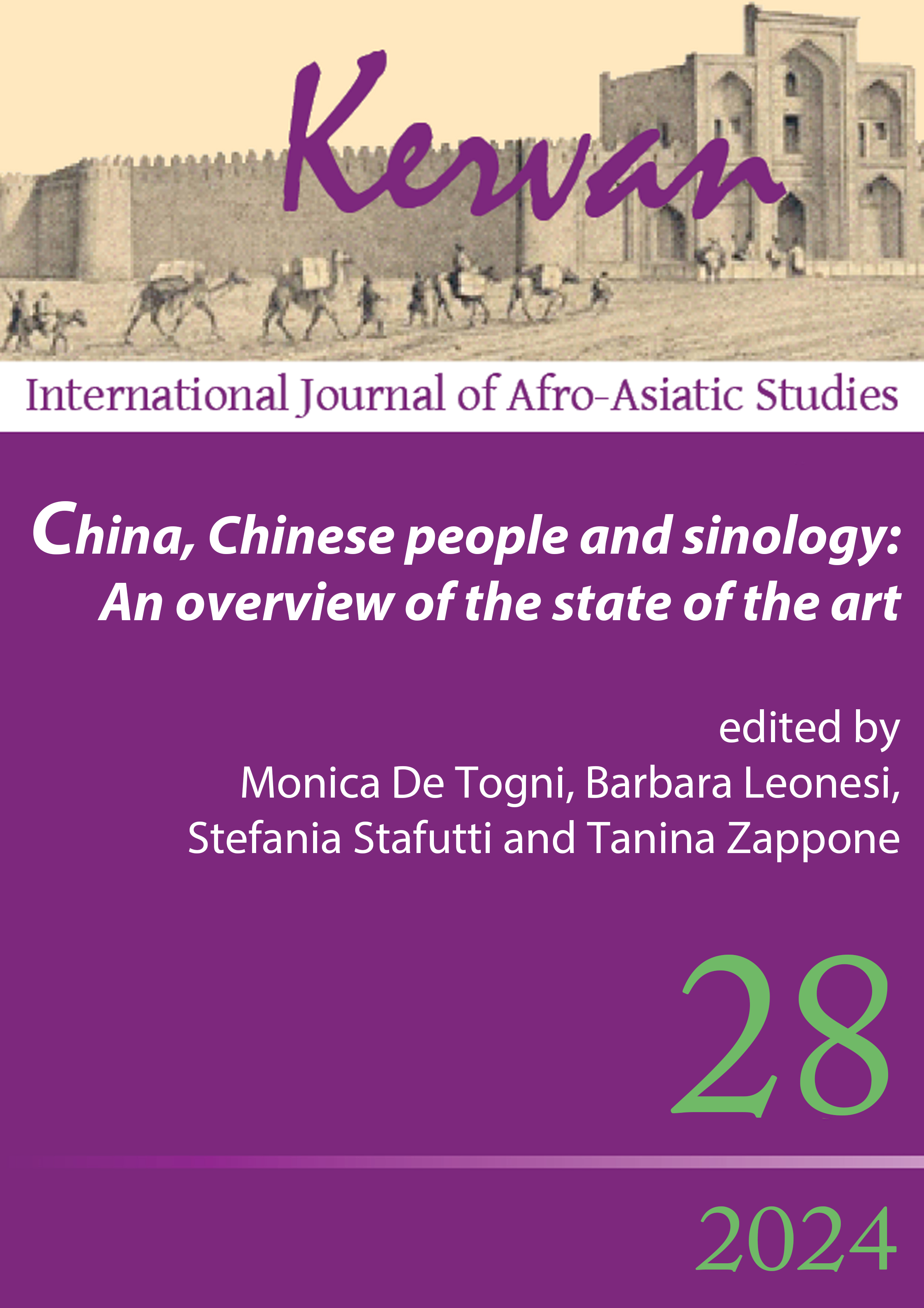The fantastic dimension in Mo Yan: A new way of narrating the supernatural encounter?
DOI:
https://doi.org/10.13135/1825-263X/11607Abstract
In the enthusiastic revival of the marginal genre of the zhiguai tale that characterized the 1980s, Mo Yan’s tales of the supernatural deserve particular attention. In stories such as Qiyu 奇遇 (“Strange Encounter”) and Yeyu 夜渔 (“Night Fishing”) collected in Xuexi Pu Songling 学习蒲松龄 (“Learning from Pu Songling,” 2011), the protagonists experience an unexpected and unsettling encounter with the supernatural, especially when returning to their home villages from modern cities. While borrowing themes already present in the Liaozhai, Mo Yan’s return to this ancient genre shows stylistic innovations that recall rhetorical devices described as central in the Western fantastic tale. In Mo Yan, this especially concerns the new context in which the strange event takes place and the new reactions of his modern protagonists towards the supernatural.
Adopting some descriptive categories proposed by critics of the Western fantastic, this analysis focuses on the frontier space of the countryside as a central rhetorical device that activates a fantastic mode of ‘hesitation’ towards supernatural encounters. As soon as they ‘cross the threshold’ to the fantastic dimension, Mo Yan’s modern protagonists are led back into a world in which the unforeseen return of an ancient and apparently overcome order causes bewilderment and incredulity.
Downloads
Downloads
Published
Issue
Section
License
Gli autori che pubblicano su Kervan accettano le seguenti condizioni:
- Gli autori mantengono i diritti sulla loro opera e cedono alla rivista il diritto di prima pubblicazione dell'opera, contemporaneamente licenziata sotto una Licenza Creative Commons - Attribuzione che permette ad altri di condividere l'opera indicando la paternità intellettuale e la prima pubblicazione su questa rivista.
- Gli autori possono aderire ad altri accordi di licenza non esclusiva per la distribuzione della versione dell'opera pubblicata (es. depositarla in un archivio istituzionale o pubblicarla in una monografia), a patto di indicare che la prima pubblicazione è avvenuta su questa rivista.


 The articles that have appeared on Kervan since 2016 are rated as Class A in the system of National Scientific Qualification (ASN, disciplines 10/N1 and 10/N3).
The articles that have appeared on Kervan since 2016 are rated as Class A in the system of National Scientific Qualification (ASN, disciplines 10/N1 and 10/N3). The journal has been approved for inclusion in DOAJ. The DOAJ listing of the journal is available at
The journal has been approved for inclusion in DOAJ. The DOAJ listing of the journal is available at  The journal has been approved for inclusion in ERIH PLUS. The ERIH PLUS listing of the journal is available at
The journal has been approved for inclusion in ERIH PLUS. The ERIH PLUS listing of the journal is available at  Kervan was just accepted for indexing in SCOPUS. This important milestone ensures that articles published in Kervan are easily found when searching for library, archives and Information science and it enables Kervan authors to keep track of how often their article has been cited by others.
Kervan was just accepted for indexing in SCOPUS. This important milestone ensures that articles published in Kervan are easily found when searching for library, archives and Information science and it enables Kervan authors to keep track of how often their article has been cited by others.

